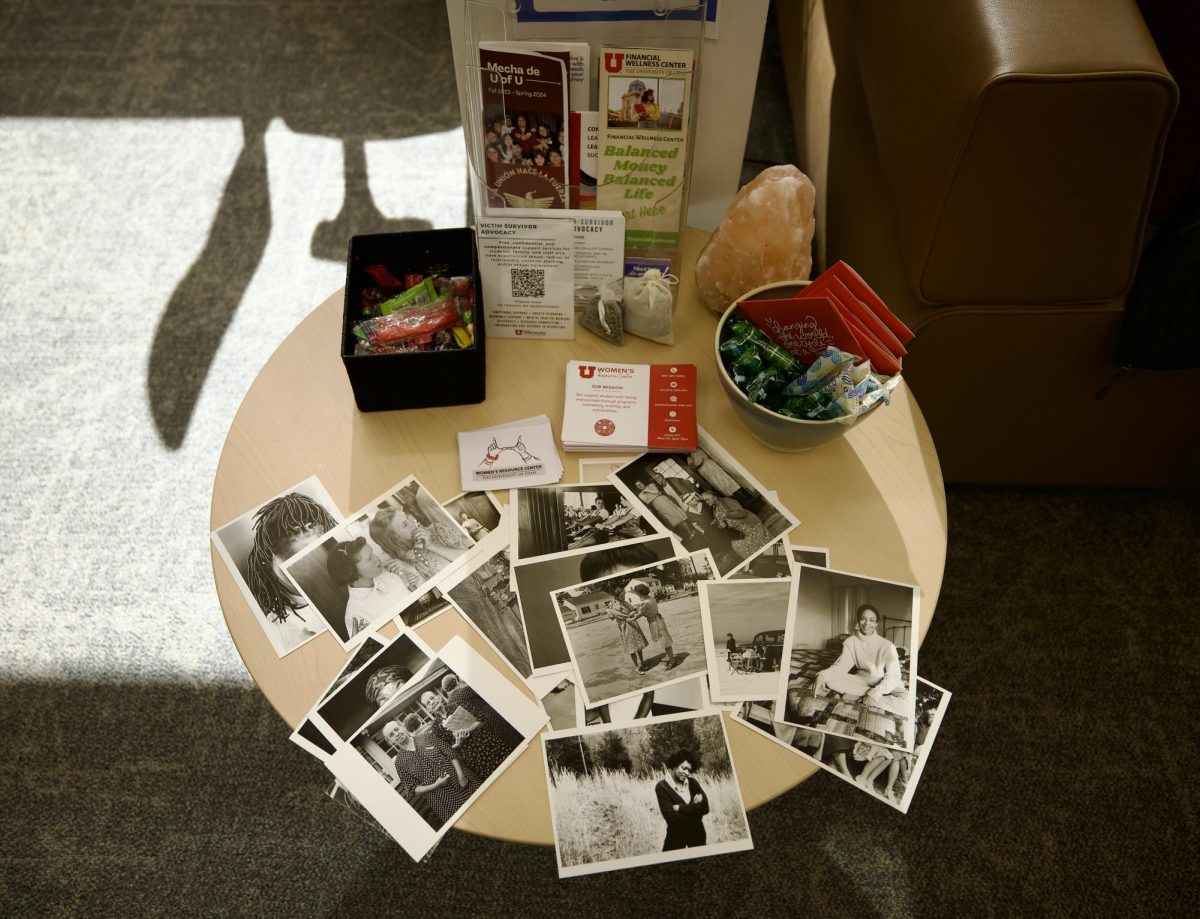A large majority of college students in the United States are sexually active. According to a study by the Health Resources and Services Administration, “94% of college students are sexually active, and many engage in a wide variety of sexual risk behaviors that can have long-lasting impacts on their health and academic success.”
The ASCENT Center for Reproductive Health at the University of Utah recognizes this and is committed to helping students if they get in a tough spot — the center provides emergency contraception to students at the U when they need it.
In one of their studies, they are researching contraception for men.
The research page of their website states, “This ongoing trial is testing a new contraceptive gel for men. Based on preliminary research conducted elsewhere, the scientists believe the hormonal gel decreases a man’s sperm production — reducing his chances of fathering a child — without decreasing his sex drive.”
The website states that exploring more options for male contraception could help ease the burden of birth control off of women.
Sarah Elliott is the associate director for the ASCENT Center, and she was integral in getting the emergency contraception program started in December 2022, along with Caitlin Quade and Erica Torres, all of whom have a master’s degree in public health. The program was funded through local donors and grants, in order to provide it to students for free.
“Reproductive health is incredibly important to me, and making sure that everyone has access to the full range of reproductive health in Utah was incredibly important to me,” Elliott said.
The center has two main ways they help students access the contraception that they need, through distributing to on-campus resources, as well as partnering with local pharmacies.
The center provides commonly used contraception products, such as ella and Plan B.
Plan B is available over the counter at any pharmacy or drugstore, while ella is prescription-based.
“Emergency contraception is a safe way to prevent pregnancy after unprotected sex. There are a few types of emergency contraception, and some work better than others. No matter what kind of emergency contraception you use, take it as soon as possible,” according to the Planned Parenthood website.
The service has been frequently used at the U.
“We have distributed over 4,500 oral emergency contraception pills between November 2022 and September 2023,” Elliott said.
Emergency Contraception On-campus
The center has partnered with several on-campus entities to distribute the contraception. The pills are available for pickup through the Basic Needs Collective, the Women’s Resource Center, the Center for Student Wellness and a vending machine located in the basement of the A. Ray Olpin Union building.
Elliott said this resource is only available to those who are of legal age but wants students to know that if they need Plan B, it is available for purchase at most pharmacies and drug stores.
The center is also finalizing plans to install another vending machine in the Peterson Heritage Center.
The Women’s Resource Center is one of the locations where students can get emergency contraception if they need it. Kirstin Maanum works as the director of the Women’s Resource Center and wants to make sure that students feel comfortable using the resource.
“The WRC feels strongly about making it accessible in places where students feel comfortable accessing it,” Maanum said. “Same with the pleasure packs — we are a pickup site for that. We want students to feel comfortable getting what they need.”
Contraception Off-campus
ASCENT has partnered with local university-affiliated pharmacies, where students can pick up over-the-counter morning after pills for no charge. The program is known as the Free Emergency Contraception program.
“People are able to walk into any University of Utah affiliated pharmacy, so a total of 17 locations across the state, and pick up Plan B, which is available over-the-counter — there’s no charge to them to pick that up anytime,” she said.
If students want to use the prescription morning after pill ella, they can do so by creating a myChart account through University of Utah Health and request ella or Plan B through the corresponding form. Instructions can be found on the website.
“Emergency contraception is available to access for anyone 18 and over it’s free to access at multiple locations available 24/7 through the vending machine, and the ASCENT Center itself is available with additional education and resources at any time for any reproductive health questions [students] may have,” Elliott said.
If students have other questions about reproductive health, the center has a text line students can use to get more answers. The text line number is 801-839-5256.




John Hedberg • Dec 18, 2023 at 2:38 am
What’s the corollary of ASCENT? DEscendants? 😂
We at the U can also choose to be the first in the nation to explore the emotional ramifications of a continuous merry-go-round of sexual encounters and how this affects us emotionally, in particular our ability to form more lasting bonds if we want to do so later in life. Pandemic pregnancy & disease aside, there’s a psychological aspect that has long-term effects when we treat each other as sexual commodities in a “consumer” society. It would be courageous and ground-breaking work to study the changes in how we feel about ourselves and each other from this continual sexual minuet, how this affects pair-bonding with partners and potential progeny (that’s kids~! 🙂), and whether the psychological problems we are facing in this generation may actually be in part the unintended consequence of our parents’ “frolicking youth”.
Who’d have thought? Oh, wait! This is education~! 😎😋